Why are some countries richer than others
More than two centuries ago, the Scottish economist and ethical philosopher Adam Smith was one of the first people in the world who began to position the economy as a science. The main problem that he was trying to solve was the question of why some countries are richer than others? The answer to it was laid down in the book and his main literary work “Research on the Nature and Causes of the Wealth of Nations” (1776). Then Smith was ahead of time. Much of what he said 240 years ago still remains relevant..
Speaking about the principles of economics, three fundamental components can be distinguished: capital, labor, and the so-called coefficient of efficiency. The capital of the country consists of equipment, buildings, land, resources. Labor is made up of labor and people who are involved in production. And the efficiency ratio is how well the country converts capital and labor into production.
Efficiency has the greatest impact on GDP. It is the difference in development between states.
Poor allocation of resources
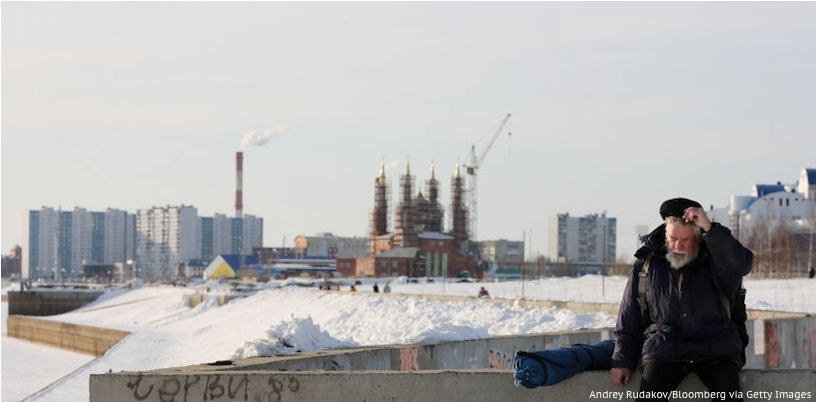
Stanford University economist Charles Jones, based on a study of the latest economic literature, concludes:
“The systematic picture is obvious in 128 countries of the world. In the poorest countries, the difference in GDP per working person reaches 80% relative to the United States. And this is due to differences in efficiency ”.
According to Jones, over the past 15 years, books on economic growth have highlighted the problem of misallocation of resources. This manifests itself at the micro level and leads to an overall decrease in efficiency on a large scale. When resources are inappropriately allocated, the amount of input data / resources gives a smaller amount of results / products. According to the researcher, this is the main answer to why some countries are richer than others..
Why it happens?
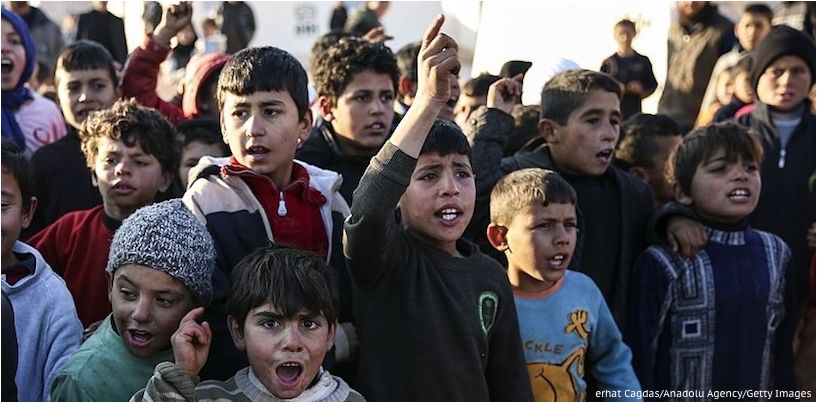
What triggers the misallocation of resources? Adam Smith lived in the 18th century British Empire, a state with a “peculiar” policy. Due to the active intervention of the hardened government, many monopolies were created that were protected from fierce market competition. Medieval guilds controlled output, prices and duties. In such conditions, adjusting, it was necessary to work for carpenters, masons, carvers, textile workers, glassblowers and other artisans.
Looking at the modern world, we often see the legacy of this approach: professional monopolies created by countries, currency control, supervision of land use and mineral resources put in the framework of simple workers and entrepreneurs.
Weak state protection, a lack of capitalist institutions, a lack of access to the court system and lobbying for corporate interests in the political arena channel resources in one direction only. And the limitedness in them (resources) reduces the desire of a person who wants to achieve his private interests with the goal of earning. At the same time, according to Adam Smith, the thirst for one’s own well-being, regardless of the will and consciousness, leads to benefit and benefit for the whole society. The more opportunities to get involved in this thirst, the better for overall progress..
The main condition for achieving this opportunity is:
• Guarantee of economic freedom.
• Freedom to choose a field of activity.
• Freedom of decision making.
• Freedom of competition and freedom of trade.
• Availability of private property.
Institutions and their impact on the well-being of peoples

Based on economic literature, three factors of wealth and economic growth can be identified: institutions, culture, and geography. Institutions are systems, organizations, laws that create a good foundation for education, the proper distribution of resources, and technological progress. Culture influences the tendency of people to create and promote institutions. And geography serves as a source of capital and improves the economic environment. For example, if there are rivers and seas, the state gains great prospects in international trade. Although many economists do not agree with this approach. There are frequent cases when countries of the same geographical latitude or cultural, ethnic orientation have completely different economic indicators.
According to American economists Daron Ajemoglu and James Robinson, authors of the book “Why Are Some Countries Rich and Others Are Poor,” the prosperity or decline of states is determined primarily by the nature of their economic and political institutions.
Institutions can be divided into two camps:
• Extractive Economic Institute – it allows elites to manage the state’s economy for their own benefit and prevent other groups of citizens from extracting it for themselves. This approach is inherent in unlimited monarchy, dictatorial and totalitarian regimes. He directs resources one way.
• An inclusive economic institution – it allows participation, if not all, then a large number of citizens in economic relations with the possibility of profit and prevent small groups from regulating the economy. Such an approach is the basis of all liberal states. He directs resources to a wide range of people..
Both of these institutions can lead to economic growth, but the dynamics are different and extractive economic institutions are short-lived..
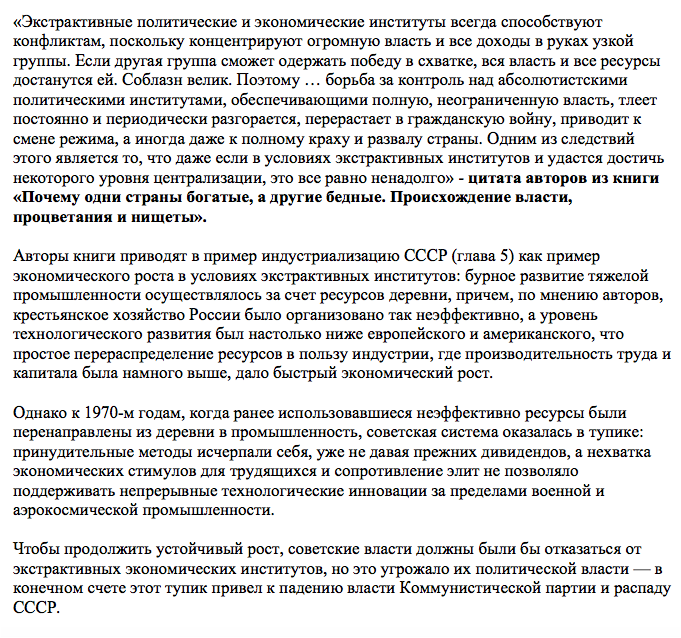
Source: ru.wikipedia.org
Hard work and restraint contribute to economic success
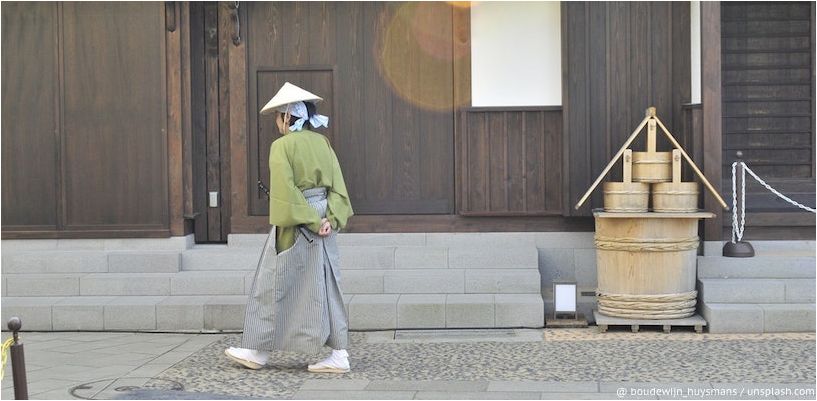
There are other opinions. The German economist and sociologist Max Weber, known as one of the founders of sociology, answering the question of why some countries are richer than others, gives an example of religion.
He said that “Protestant ethics” is important for capitalist prosperity. It works on the basis of saving money and reinvesting profits. Weber says that societies with a culture of industriousness and consumer restraint were economically successful even before the industrial revolution (1740-1780).
The beginning of Protestantism can be considered the Cistercian Catholic monastic order, formed in 1098. A group of breakaway Benedictines advocated stricter obedience to the Charter of St. Benedict. In an effort to devote much time to prayer, they maximally optimized their work and minimized consumption. It was the simplest model of economic success. Thanks to the spread of Protestantism, diligence and restraint have become fundamental values in society.
Thus, countries whose culture places great emphasis on labor and economy, made a breakthrough in development thanks to the industrial revolution. But their advantage over the others was noticeable even before its onset..
This conclusion is confirmed by the example of Japan – a country where labor and modesty occupy important places. Consequently, ceteris paribus, states with a high level of work ethics will, from a historical point of view, achieve greater prosperity than the rest.
World differences increase the gap
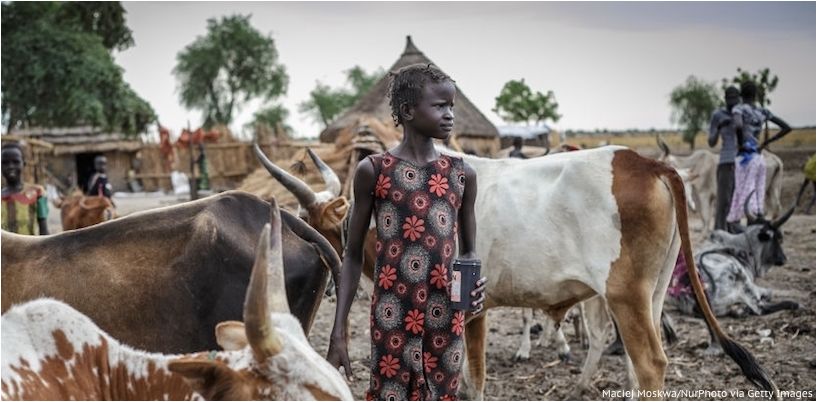
Before the industrial revolution, differences in the welfare of countries were small. And when it came, it led to the transition to mechanized production, and thereby increased labor efficiency. So, in European countries, economic viability has grown significantly. Therefore, today they are ahead of most countries in the world..
Researchers believe that the difference in the timing of the arrival of the industrial revolution in a particular region is an answer to the question of why some countries are richer than others.
But do not forget that colonization played an important role here. It allowed the metropolises (colonialists) to exploit natural resources (in some cases – unique, rare), as well as the labor of local residents of the colonies. Enormous wealth was exported from there. Their application accelerated the socio-economic development of Europe and North America, but delayed the economic and political development of the occupied countries.
This gave rise to “bankruptcy” and robbery of vast areas and the extermination of entire nations. Colonial territories became agrarian and raw materials appendages for the capitalist industry of the metropolises. In the postcolonial period, the developed western countries were much more economically superior than those they used.
Now, the territories freed from colonial dependence have received the name of Third World countries. Low wages make them reservoirs of cheap labor, which enables corporations to minimize costs by moving production into them.
Similar articles
- Why the rich get richer
In 2016, the American company GOBankingRates conducted a study where it turned out that 2/3 of the US residents have less than $ 1,000 savings, and another 35%…
- The richest man in Babylon – the main points
The work of George Samuel Clayson “The Richest Man in Babylon” appeared in 1926 in the form of brochures, and a year later was published in the form of a book. Author…
- How the rich became rich and successful
How the rich became rich Many successful entrepreneurs were born in ordinary provincial cities, studied in general schools and started working in the same…

Why do you think there is such a wide disparity in wealth between different countries? Is it solely due to economic factors or are there other societal and political influences at play? I’m curious to understand the reasons behind why some countries are richer than others.
Why do some countries have more wealth than others? This is a question that has intrigued scholars, policymakers, and ordinary citizens alike. After reading this opinion review on the topic, I am left wondering what key factors contribute to this disparity. Are natural resources the main driver of economic prosperity, or is it a combination of factors like political stability, education, and technological advancements? Additionally, how do historical events and colonization play a role in shaping a country’s wealth today? I’m eager to explore this further and understand the complex dynamics at play.